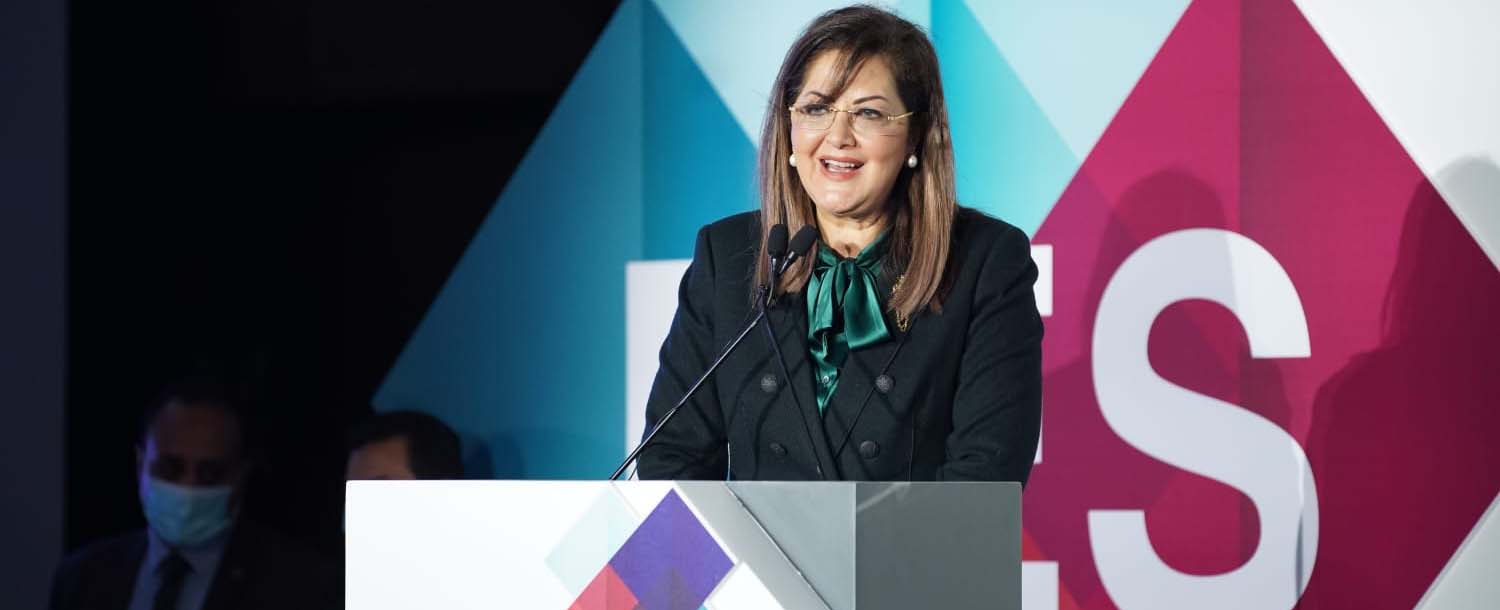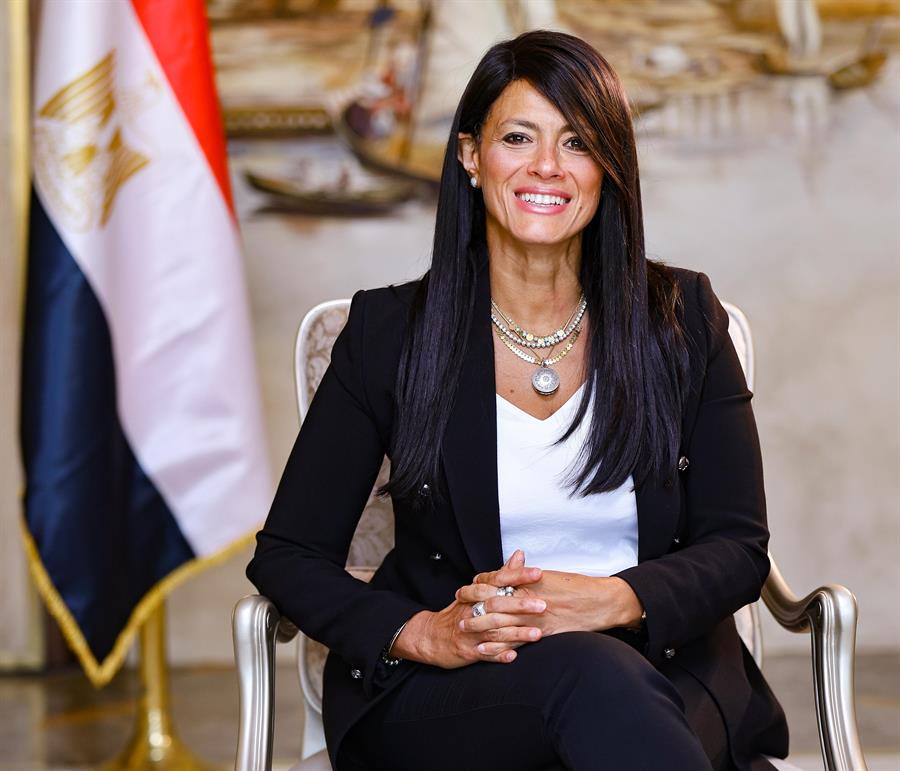Implementation of national projects in Egypt is ongoing despite the pandemic: Minister of Planning & Economic Development

14 December 2021
Egypt’s Minister of Planning & Economic Development, Dr. Hala El-Said participated recently in the activities of the Egypt Economic Summit in its third edition, held under the slogan "Community Development and Investment Opportunities after the Corona crisis", under the auspices of Egypt’s Cabinet.
This year's conference addresses the topic of "Global Inflation and the Role of the Public and Private Sectors in confronting it ".During her speech, El-Said emphasized that despite the severity of the Covid-19 crisis and its repercussions on the economies of the entire world, Egypt is the only country in the world where national projects and the huge funding they require and come at the forefront of these projects, is the "Decent Life" initiative. The preliminary phase of the "Decent Life" initiative was launched in January 2019, targeting 375 villages. The initiative contributed to reducing poverty rates in some villages by 11 percentage points and resulted in an improvement in the rate of access to basic services by about 50 percentage points in some villages.The initiative also contributed to mitigating the effects of the Coronavirus on the lives of 4.5 million citizens.El-Said added that to complement the success achieved in the preliminary phase, the first phase of the initiative was launched within the framework of the national project for the development of the Egyptian countryside, targeting all villages in the Egyptian countryside (about 4,500 villages in which more than half of the population of Egypt live - 58 million citizens). The first phase aims to transform rural villages into sustainable rural communities that meet all development needs within three years, at a total cost of about EGP 800 billion (about $ 52 billion).El-Said emphasized that all these efforts are carried out through a participatory approach that the Egyptian state is keen on mobilizing all the resources and energies available to the government, the private sector, and civil society, and with active community participation in which the role of both youth and women in achieving comprehensive and sustainable development is highlighted.
She further noted that the Egyptian state views young people as the real wealth of the Egyptian state, as they are the present of the development process and its promising future. “The government is working to expand investment in people by implementing many training and capacity-building programs, including training programs and scholarships for young cadres, including the Business Administration Program Governmental in cooperation with the ESLSCA University,” She said.El-Said added that in the context of talking about community participation comes the active role of Egyptian women in development efforts.
“We are currently living in the golden age of Egyptian women, where women receive unprecedented attention and support from the political leadership,” El-Said explained.El-Said noted that all these efforts and policies with their economic and social dimensions have contributed to strengthening the elements of the resilience of the Egyptian economy.
This was reflected in the positive indicators that the Egyptian economy witnessed, despite the severity of the pandemic and its repercussions, the Egyptian economy has succeeded in achieving a growth rate of 3.3% during Fiscal year 20/2021 (compared to 3.6% in 2020/19).El-Said pointed out that Egypt came among a limited number of countries in the world that achieved growth in light of the pandemic.
It is expected to range between 5.5% and 5.7% in the current fiscal year 21/2022, driven by the growth spurt achieved in the first quarter of the year (9.8 %), which is the highest growth rate in 20 years, and it was among the positive indicators of the Egyptian economic performance. She highlighted the issue of inflation rates, especially as it is the main topic of this summit, explaining that Egypt is not isolated from the repercussions of the Covid-19 crisis and the global inflation crisis that followed recently. The annual inflation rate in Egypt witnessed some rises after the Covid-19 crisis, as the inflation rate increased to 6.3% in November 2020, compared to 2.7% for the same month of the previous year.
El-Said reviewed the Egyptian government's directions to control inflation, which included the establishment of 4 strategic warehouses, as well as logistical zones in Cairo, and the establishment of these zones is underway to cover the governorates of the Republic in cooperation with the private sector and The Sovereign Fund of Egypt (TSFE).









